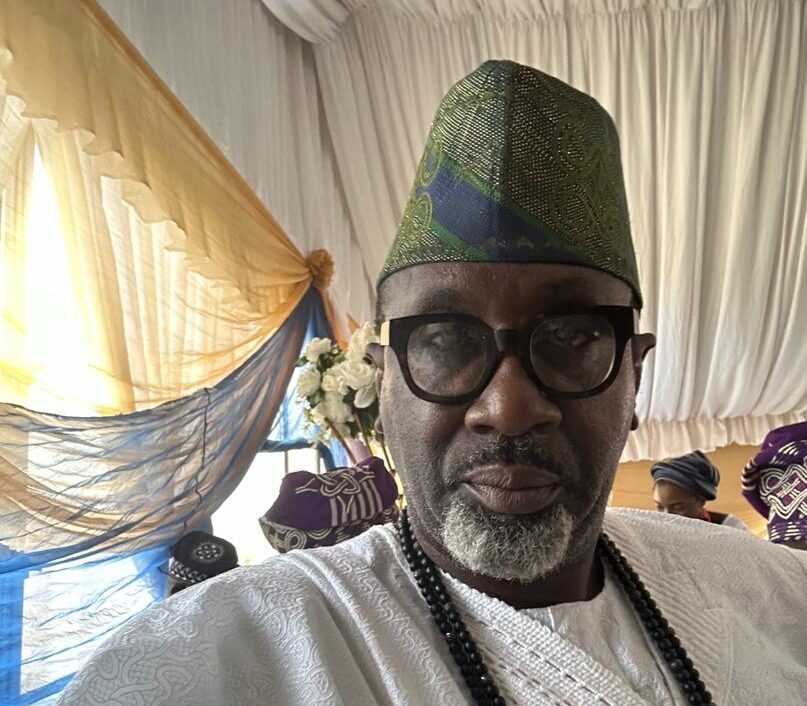AATSG stands with the FG in their legal action against Governor Sanwo-Olu, Dapo Abiodun, Hope Uzodinma, and other individuals. Your support is crucial in holding these individuals accountable.
The legal action instituted by the Federal Government against the Governors of the 36 States of the Federation at the Supreme Court over alleged misconduct in the administration of Local Government Areas (LGAs) is a bold move towards strengthening our democracy and our federal system of governance. The issue of autonomy for LGAs has been a longstanding concern, with state governors often accused of manipulating and controlling the affairs of local governments for their personal and political gain.
By seeking full autonomy for all LGAs as the third tier of government, the Federal Government is paving the way for a more transparent and accountable system of governance at the grassroots level. The move to prevent state governors from unilaterally dissolving democratically elected local government leaders and ensuring that funds meant for local governments are directly channeled to them from the Federation Account is a crucial step towards ensuring that local governments are able to function independently and effectively serve the needs of their communities.
Overall, this legal action sends a strong message that the rule of law must be upheld and that all levels of government must operate within the confines of the Constitution. It is a positive step towards promoting good governance, accountability, and ultimately, strengthening our democracy.
In a recent development, the Federal Government (FG) has taken a bold step by praying the Supreme Court for an order to prevent governors from constituting Caretaker Committees to run the affairs of local governments. This move is seen as a significant push towards upholding the Constitutionally recognized and guaranteed democratic system in Nigeria.
The FG has also requested an injunction to restrain governors, their agents, and privies from receiving, spending, or tampering with funds released from the Federation Account for the benefit of local governments. This request comes in light of the absence of democratically elected local government systems in many states across the country.
The lawsuit names the governors of all 36 states, through their respective Attorneys General. In the 27 grounds listed in support of the suit, the FG argues that Nigeria, as a federation, was created by the 1999 Constitution, with the President sworn to uphold and give effect to its provisions. This highlights the importance of adhering to the constitutional framework that governs the country.
The FG’s stance is backed by the belief that the Constitution provides for a democratic system of governance, including the election of officials at the local government level. By allowing governors to appoint Caretaker Committees to run local governments, the democratic process is undermined, and the rights of the citizens to elect their representatives are compromised.
Furthermore, the diversion of funds meant for local governments without a democratically elected system in place raises serious concerns about accountability and transparency in governance. Local governments play a vital role in service delivery and grassroots development, and the mismanagement of funds allocated to them can have a detrimental impact on the well-being of the people.
The FG’s decision to take legal action against governors who bypass the democratic system in appointing Caretaker Committees to run local governments is a commendable step towards upholding the rule of law and ensuring good governance at all levels. It is imperative that the Constitution be upheld, and the rights of the citizens to participate in the democratic process be respected. It is hoped that the Supreme Court will rule in favor of the FG, setting a precedent for transparent and accountable governance in Nigeria.
Local governance at the grassroots level is vital for effective service delivery and representation of the people’s interests. However, in some cases, democratically elected local government systems are not implemented, thus depriving citizens of their right to participate in decision-making processes.
In situations where governors fail to establish democratically elected local government systems as mandated by the Constitution, it raises concerns about the lack of accountability and transparency in governance. The suspension of democratic institutions without a valid justification undermines the principles of democracy and the rule of law.
Efforts to enforce compliance with the Constitution have been met with resistance, indicating a deliberate disregard for constitutional obligations. Continuing to disburse funds to governors for non-existent democratically elected local governments further perpetuates this violation of the Constitution.
It is imperative that governors uphold the principles of democracy and good governance by ensuring the establishment of democratically elected local government systems. Only through adherence to constitutional provisions can effective and inclusive governance be achieved at the local level.
The federal government’s argument that it is not obligated to pay funds to local governments where there is no democratically elected local government in place, as per section 162 of the 1999 Constitution, raises important questions about the state of democracy and governance in Nigeria.
The Constitution clearly establishes the framework for a democratic system of government in Nigeria, with provisions for the three tiers of government – federal, state, and local. Local governments are meant to be run by democratically elected officials who represent the interests of the people at the grassroots level. However, there have been numerous instances where state governors have dissolved democratically elected local government councils and replaced them with caretaker committees or administrators appointed by the state government.
This violation of the Constitution not only undermines the principles of democracy but also deprives local government areas of the much-needed funds and resources that are allocated to them for development projects and social services. The federal government’s stance that it will not release funds to local governments without democratically elected officials in place is a step in the right direction towards upholding the rule of law and ensuring accountability at all levels of government.
By invoking sections 1, 4, 5, 7, and 14 of the Constitution, the federal government is seeking to hold state governors and state houses of assembly accountable for ensuring that democratic systems are in place at the local government level. This is a crucial move towards strengthening the democratic institutions in Nigeria and ensuring that power is not concentrated in the hands of a few individuals.
The Supreme Court has a duty to uphold the Constitution and ensure that all levels of government adhere to its provisions. By declaring the dissolution of democratically elected local government councils as unlawful and unconstitutional, the Court would be sending a strong message that the rule of law must be respected by all, regardless of their positions of power.
The federal government’s decision to withhold funds from local governments without democratically elected officials is a necessary step towards promoting good governance and democracy in Nigeria. The Supreme Court must uphold the rule of law and ensure that the Constitution is respected at all levels of government to prevent further violations and protect the rights of the people.
In a recent affidavit deposed to by Kelechi Ohaeri from the Federal Ministry of Justice, it was revealed that the Attorney General of the Federation filed a suit under the original jurisdiction of the Supreme Court on behalf of the Federal Government. The deponent emphasized that the Constitution recognizes democratically elected local government councils as the official local government system. Furthermore, it was stated that the amount due to local government councils from the Federation Account should be paid to the recognized local government system as stipulated by the Constitution.
The Federal Government indicated that during the hearing, various online publications such as Daily Post, Vanguard, Guardian, Premium Times, and Arise News would be tendered as evidence to support the importance and public interest of granting autonomy to Local Government Areas (LGAs) in the country. The suit is aimed at addressing concerns raised in these publications, including allegations of constitutional breaches by 15 governors regarding LGA administration.
The Supreme Court, in response to the suit, has scheduled a hearing for May 30. This legal action underscores the government’s commitment to upholding the rule of law and ensuring the proper functioning of local government structures in Nigeria. It is a significant step towards addressing issues of autonomy and accountability within the local government system, ultimately leading to better governance and service delivery at the grassroots level.
Otunba Abdulfalul Abayomi Odunowo
National Chairman AATSG
Tel: +2349053535322
Follow Us on our Whatsaap page: https://whatsapp.com/channel/0029Vafk47UIt5rsBJ1eye0S



